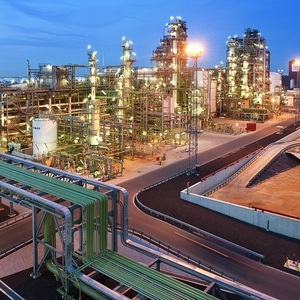Neste sells record volume of renewable diesel in Q2

Photo: Neste Corp.
July 28, 2020
BY Erin Krueger
Neste announced July 23 that its renewable products business set a new quarterly sales volume record during the second quarter of this year. Nameplate production capacity for renewable diesel also increased during the quarter.
“Despite the market turbulence due to the COVID-19 pandemic, Neste’s performance was solid during the second quarter,” said Peter Vanacker, president and CEO of Neste, in the company’s second-quarter report. “Renewable Products business proved to be very resilient and reached a new quarterly sales volume record. Oil Products’ suffered from an unprecedentedly weak refining market caused by the global COVID-19 related demand destruction, and the segment was loss-making. Marketing & Services performed well in the circumstances also considering the earlier divestment of our Russian business.”
Advertisement
Neste reported that its renewable products segment achieved 314 million euros ($396 million) in operating profit for the second quarter, up from 286 million euros in 2019. “The renewable diesel demand remained good, and our sales volumes reached a record 773,000 tons,” Vanacker said. “This new quarterly record was also supported by very good operational performance at the refineries,” he continued, noting nameplate capacity for renewable products increased to 3.2 million tons per year during the quarter.
Neste’s renewable diesel plants operated at an average utilization rate of 90 percent during the quarter, down from 105 percent during the second quarter of last year.
According to Neste, feedstock markets remained very tight during the quarter. Waste and residues accounted for 78 percent of total renewable raw material inputs during the three-month period, compared to 77 percent during the same period of 2019. The comparable sales margin, including the blenders tax credit, averaged $625 per ton, down from $674 per ton during the same period of last year.
Advertisement
During the second quarter, approximately 71 percent of Neste’s renewable products sales volumes were sold into the European market, up from 65 percent during the same period of last year. Approximately 29 percent of sales volumes went to the North American market, down from 35 percent.
Moving forward, Neste said it expects the COVID-19 pandemic to result in continued high volatility in the oil products and renewable feedstock markets. Sales volume of renewable diesel is expected to remain relatively stable in the third quarter despite impacts from the pandemic. The waste and residue feedstock markets are expected to remain tight. Although global availability of used cooking oil gradually recovered during the second quarter, it still remains below pre-COVID-19 levels. Neste also noted utilization rates of its renewables production facilities are expected to remain high, except for scheduled catalyst changes in one Porvoo unit during the third quarter and at the Rotterdam refinery during the fourth quarter.
Overall, Neste reported 255 million euros in operating profit for the second quarter, down from 367 million euros during the same period last year. Operating profit was 208 million euros, down from 359 million euros.
Related Stories
CountryMark on July 22 celebrated the completion of more than $100 million in upgrades at its refinery in Indiana, including those related to soybean oil storage. The facility produces renewable diesel via coprocessing technology.
ATOBA Energy and Air Moana are partnering to implement scalable solutions for the supply of SAF. The collaboration aims to ensure long-term SAF availability while supporting local initiatives to develop sustainable fuel production in Tahiti.
Neste Corp. on July 24 released second quarter results, reporting record quarterly renewable product sales volumes despite weaker margins. SAF sales were up nearly 80% when compared to the first quarter of 2025.
Valero Energy Corp. on July 24 released second quarter results, reporting a profitable three-month period for its ethanol segment. The renewable diesel segment posted a loss, but the company’s new sustainable aviation fuel (SAF) unit operated well.
The IRS on July 21 published a notice announcing the 2025 calendar-year inflation adjustment factor for the Section 45Z clen fuel production credit. The resulting adjustment boosts maximum the value of the credit by approximately 6%.
Upcoming Events










